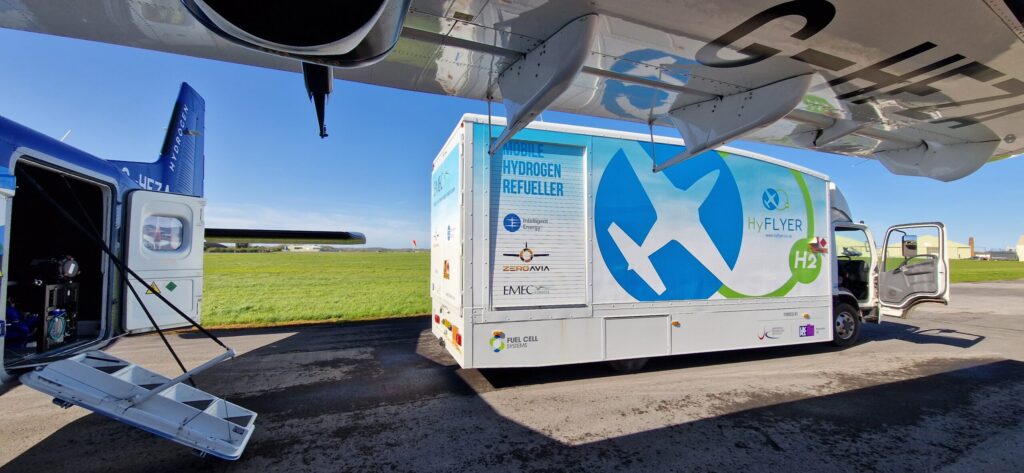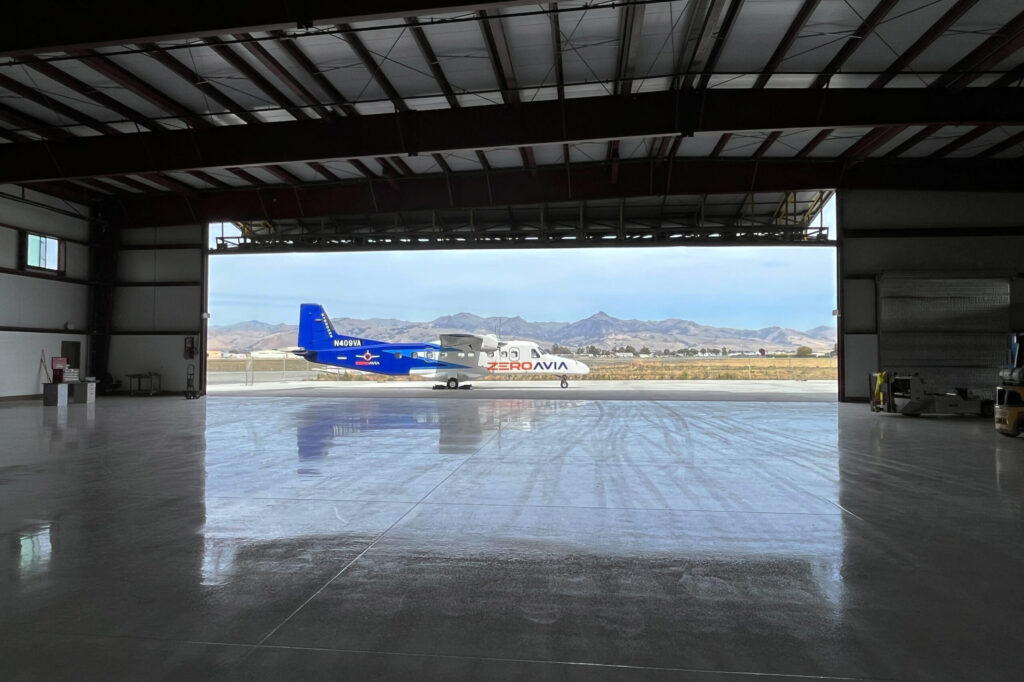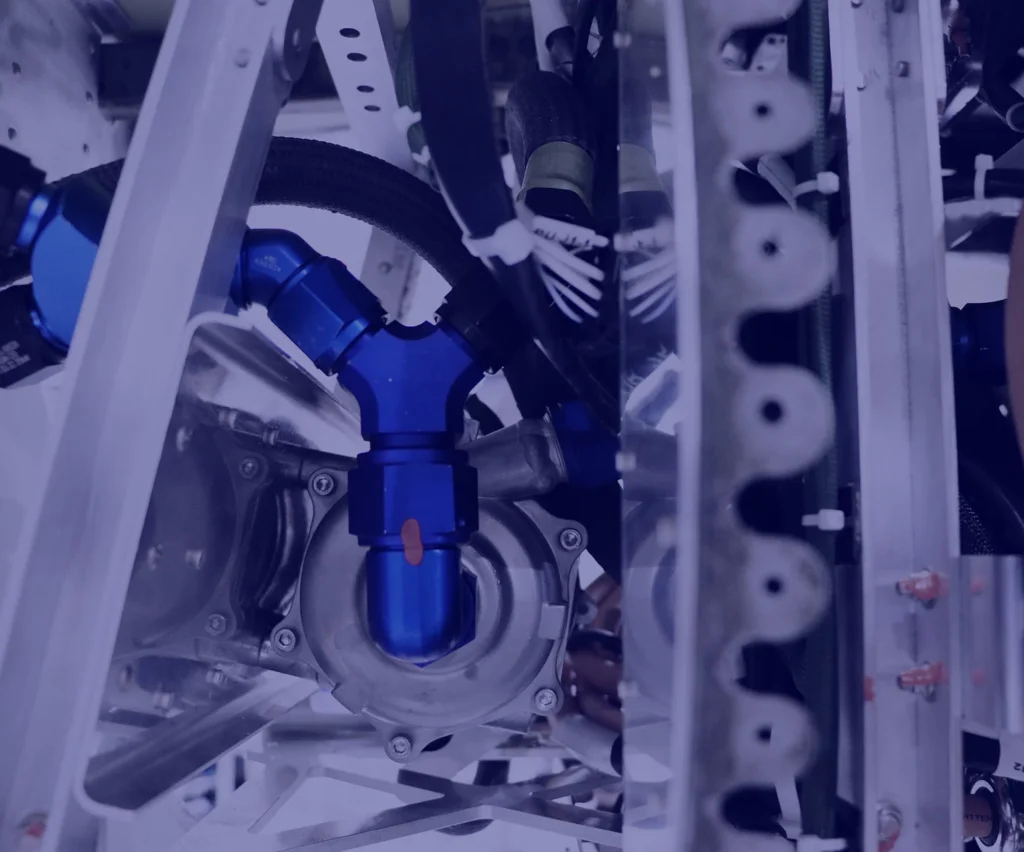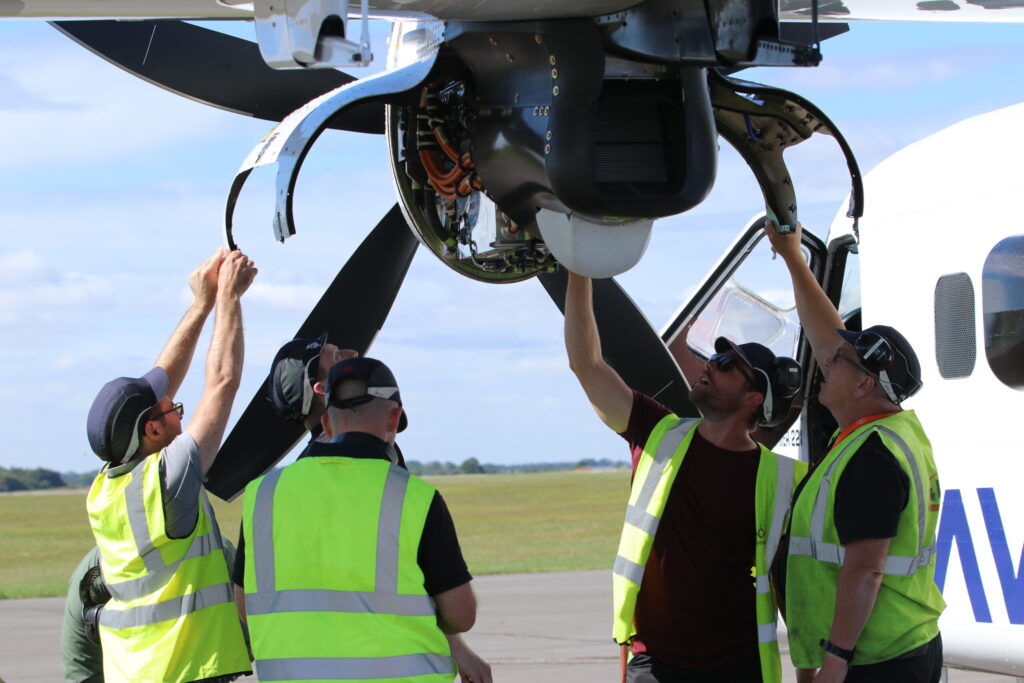KLM & ZeroAvia project: Aviation has to change, and the priority is to find a viable, effective and safe alternative to the current fuel to make a gigantic industry responsible for about 3% of global greenhouse gas emissions sustainable. Without forgetting that the industry’s impact on global warming is estimated to be about twice that of carbon dioxide because other factors are at stake, such as condensation trails and nitrogen oxide emissions at high altitudes.
The major industry giants are experimenting with three possible solutions: electric, hybrid, and hydrogen flights. The latter has been the road less travelled so far, but many are beginning to take an interest in carrying out test flights to obtain data on which to base their decisions in the medium to long term. One of the latest to announce its thematic plan is KLM, which has planned its first hydrogen-powered flight in 2026.
The KLM & ZeroAvia project
To do so, the Dutch flag carrier has partnered with ZeroAvia, an Anglo-American start-up developing hydrogen-powered aircraft since 2017. Among the little information released by KLM, it is known that the flight will connect two airports already served by a regular route.
At the same time, before taking flight, the two companies will work hand in hand to set up the necessary refuelling infrastructure at the two airports and plan in detail the bureaucratic aspect of an experiment that could open up an important avenue for the future of aviation.
ZeroAvia’s ZA2000 zero-emission engine is at the centre of interest, and KLM will integrate it into the chosen aircraft. It is an engine designed for 80-seat aircraft that, in the start-up’s plans, is expected to provide around 800 km of range in 2026. A key element of the engine is the hydrogen fuel cell, in which liquid hydrogen and oxygen flow together and which, after reaction, generate electrical energy.
In addition to powering the engine, this energy can also be used to charge a battery. However, the most advantageous aspect is another: the waste product of the chemical reaction is only water vapour. This means that, compared to current flights, a 90% reduction in emissions could be achieved, at least according to promises made by Maarten Koopmans, Managing Director of KLM Cityhopper, the regional subsidiary of the Dutch company.




Hydrogen is the answer
It should also be mentioned that while this will be KLM’s first attempt with hydrogen, ZeroAvia completed an initial experimental flight last January. A 19-seat twin-engine aircraft took off from the British Cotswold Airport and returned to base after 32 km.
September 2023 sees the maiden liquid hydrogen flight of H2Fly, a German company developing zero-emission powertrains for aircraft. Acquired in 2021 by Joby Aviation, which specialises in constructing electric vertical take-off and landing vehicles, H2Fly completed the flight equipped with an official pilot and fuel cell propulsion system.
The most significant improvement achieved thanks to hydrogen is the reduction in weight and volume of the tanks, which has doubled the range, currently close to 1,500 km. Before lulling dreams of glory, however, the aircraft must be taken up to an altitude of 27,000 feet (over 8,000 metres), the next goal on which H2Fly is working.
This is not the end of the story because, at the beginning of July, Joby Aviation used a hydrogen-powered electric plane to fly 840 km without stopping. While we know that there is still a lot to be done and that we will have to be patient amidst setbacks and unforeseen events, these successful attempts prove that hydrogen can indeed be the remedy sought by aviation to reduce the damage it does to the environment.



